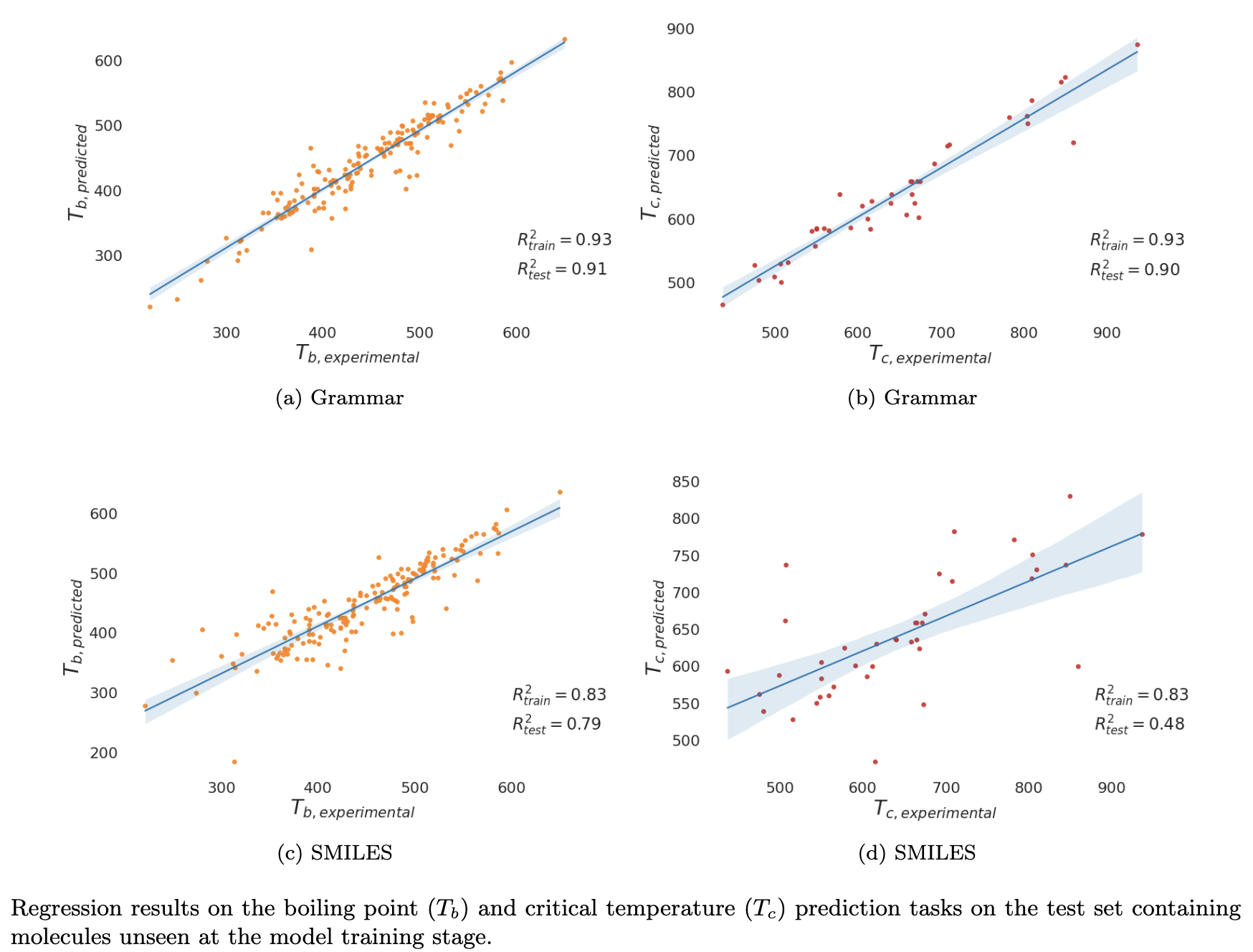2022 Annual Meeting
(362m) Hybrid, Interpretable Machine Learning for Thermodynamic Property Estimation Using Grammar2vec for Molecular Representation
Authors
References:
1. Venkatasubramanian, V. & Mann, V. Artificial intelligence in reaction prediction and chemical synthesis. Current Opinion in Chemical Engineering 36, 100749 (2022).
2. Gani, R. Group contribution-based property estimation methods: advances and perspectives. Current Opinion in Chemical Engineering 23, 184â196 (2019).
3. Mann, V. & Venkatasubramanian, V. Predicting chemical reaction outcomes: A grammar ontology-based transformer framework. AIChE Journal 67, e17190 (2021).
4. Mann, V. & Venkatasubramanian, V. Retrosynthesis prediction using grammar-based neural machine translation: An information-theoretic approach. Computers & Chemical Engineering 155, 107533. issn: 0098-1354 (2021).
5. Alshehri, A. S., Tula, A. K., You, F. & Gani, R. Next generation pure component property estimation models: With and without machine learning techniques. AIChE Journal, e17469 (2021).
